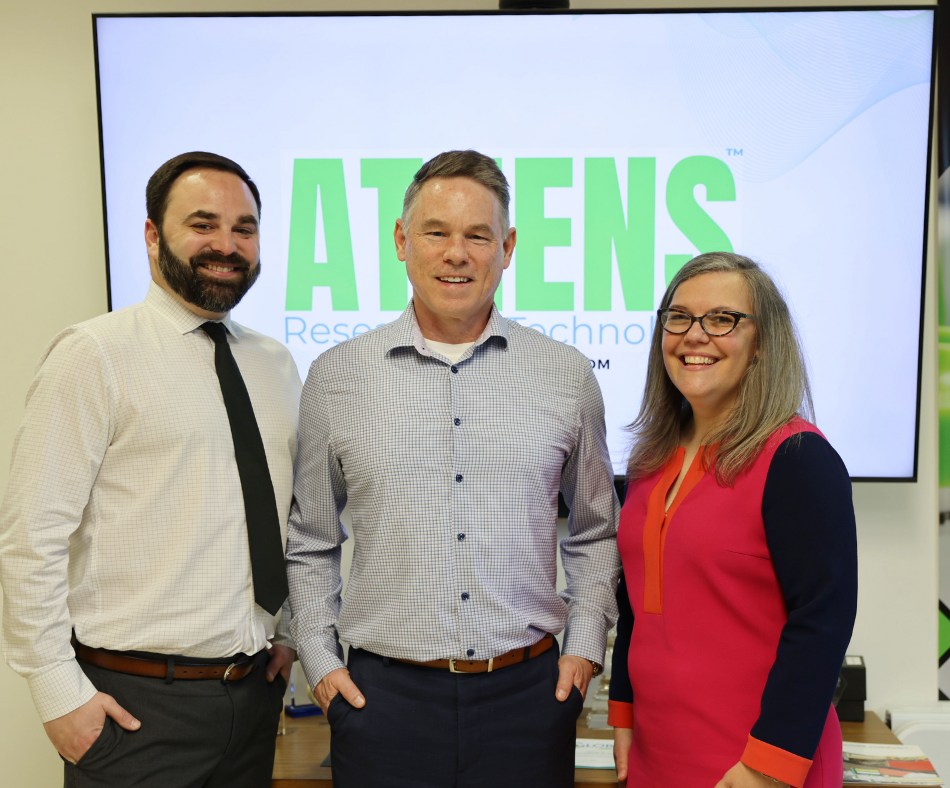Connecting the Dots: Athens Career Academy Unveils Biotech Track, Shaping Real Futures for High School Students

FOR IMMEDIATE RELEASE–February 22, 2024– Athens, Georgia – The Athens Community Career Academy, part of the Clarke County School District, is ushering in a new era of education and community development with its innovative Biotechnology Track. Designed to meet the changing needs of the workforce in Athens, this program aims to prepare high school students for successful careers in the local biotech industry.
The first of its kind in Georgia, the Biotechnology Track is a three-course pathway that equips students with the skills and knowledge to use living organisms and biological processes to solve problems and create useful products in fields like medicine, agriculture, and food science. With the support of Athens-Clarke County Economic Development and local biotech businesses, this program was created for students grades 10-12, aligning with the growing demand in the biomanufacturing and pharmaceutical sectors in Athens.
“Career Pathways offer students choices based on local workforce needs. Our goal is to continue connecting the dots between education, industry, and community, preparing students for successful careers,” says Wesley Mellina, CEO of Athens Community Career Academy.
The creation of this new program began over a year ago, driven by the vision of Ilka McConnell, Director of Economic Development for Athens-Clarke County, and Wesley Mellina, CEO of Athens Community Career Academy, in collaboration with local biotech leaders. By working closely with biotech leaders in the community, the Career Academy ensures that the curriculum meets the needs of the local biotech industry.
“One common concern [with other programs] is the lack of hands-on laboratory experience. This course is designed to better prepare students with practical laboratory skills. However, most importantly this course is designed to instill an enthusiasm for life sciences,” says John Mitchell, CEO of Athens Research and Technology. Over the past eighteen months, Athens Research and Technology has contributed both time and resources, helping to launch and make this program accessible and beneficial for students.
“The talent pipeline John Mitchell has helped us build has been tremendous. Athens Research and Technology really started looking at what level of information is needed to start a career in the industry,” says Ilka McConnell, “They’re doing a standout job at keeping their door open to the workforce and really understanding what level of education is needed to be successful in each role on their team.”
With the introduction of the Biotechnology Track, the Career Academy aims to empower students and inspire parents to see the potential in the Athens community. By offering choices for students at an earlier age and providing internship opportunities, class demonstrations, and industry engagement, the Career Academy strives to create a positive impact and showcase the long-term opportunities available in the biotech industry.
“Athens is a magical place. It’s a beautiful city,” says Ilka McConnell, “We want students to grow their skills, grow their support, and eventually grow their families here.”
Enrolling now for the 2024 Fall semester, the Biotechnology Track is open to 10th-12th graders and offers a comprehensive pathway for students to gain valuable skills in biotech. Students who complete this program will have the chance to earn the Biotility Biotechnician Assistant certification, which further enhances their career prospects in the field.
Diversity in the biotech industry stands as a cornerstone of the Biotechnology Track’s mission. The Athens Community Career Academy, committed to breaking barriers and fostering inclusivity, provides students with opportunities to explore their interests. Stepping back for a broader perspective, biology emerges as the foundational essence of all life. By raising awareness around diversity in the biotech industry and providing students with opportunities to explore their interests, the Career Academy is paving the way for a brighter future where education, industry, and community come together to create a legacy of empowerment and opportunity for the Athens Community. Image from L to R: Wesley Mellina, John Mitchell, Ilka McConnell
Media Contact:
Sydney Lucero
601-455-8590





